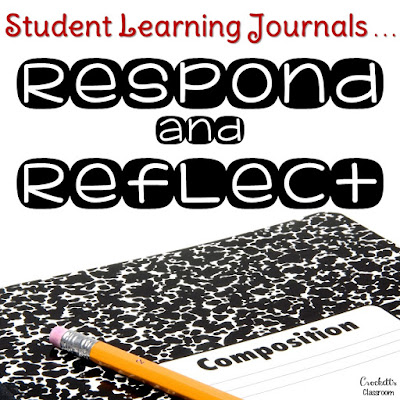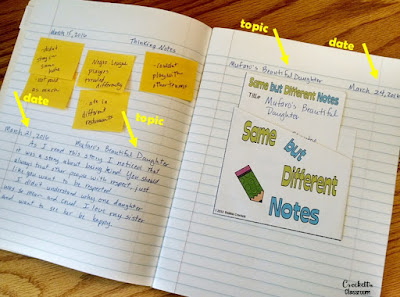Journals are a place for students to write responses and reflections about their learning. Journals can hold important notes or information about current lessons, or be a place for students to express their opinions and thoughts about their learning.
One important step to to begin using learning journals is to model your expectations for the use and care of the journals. Show students how to use the tabs in the journal. I was always amazed that students didn't know that the page with the tab is opened and the information goes on the pages after the tabbed page. Then decide what you want on the page. I liked to see the date on a line on the outside edge of the page and the topic, story or assignment toward the inside of the page. This made it easy to keep track of the journal entries. Like this:
Tip 1: Keep a journal that models exactly what you want the kids to write in their journal, with the date and assignment. That way you'll never forget what you've asked the students to write in their journal!
Tip 2: If you're asking the students to write a response or reflection make sure you are very explicit in what you expect them to write. Model the response you want several times. You can even keep the format posted in the room for students to use as a reference.
Tip 3: You can give students a response or reflection stem. This helps keep their response or reflection focused on a topic. Here is a list of ideas to get you started. Click on image for the free download.
Tip 4: After you explain the response stem, give students time to talk about their thinking in a small group or with a partner. This helps spark new ideas for the students who are often "stuck".
Tip 5: Display the format you require for the response. You can have a general response format displayed on an anchor chart, or your open journal under a doc camera.


















No comments
Post a Comment